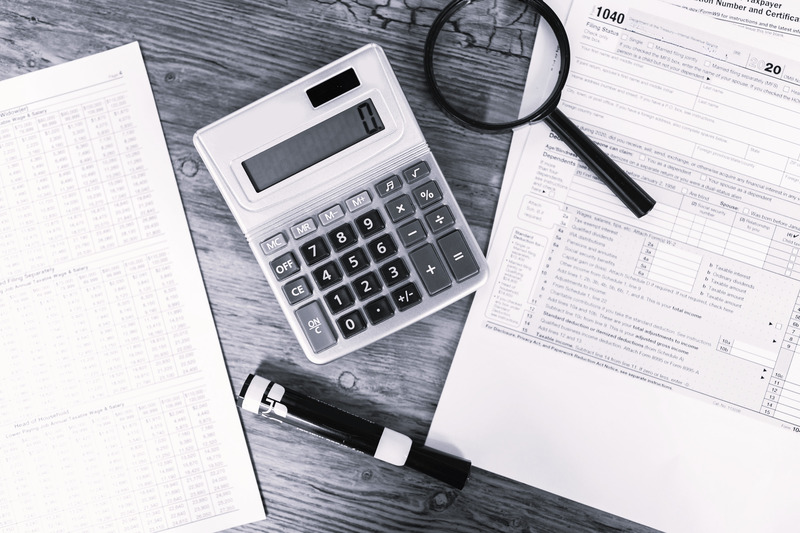
CWT Refunds Under Ease of Paying Taxes Act
By: Atty. Mabel L. Buted
"The EOPT addressed these issues by providing a specific period within which our tax authority must process and decide on administrative claims for refund. The BIR has 180 days, which commences to run from the date of submission of complete documents in support of the application. Under EOPT, no suit or proceeding in court will be filed unless there is a full or partial denial of the claim by the BIR or unless there is failure on the part of the BIR to act on the claim within the 180-day period. In such case, the taxpayer may appeal within 30 days from receipt of the decision or after the expiration of the 180-day period."
 Mabel L. Buted +632 8403-2001 loc.160 |
In my previous articles, I wrote about some of the issues related to the requirements in claiming refund of unutilized and excess creditable withholding taxes (CWTs). Some of these were effectively addressed with the passage of the Ease of Paying Taxes Act (EOPT).
To recall, prior to the enactment of EOPT, claims for refund of CWTs had to be filed within two years from the date of payment of the tax. This rule applied to both the claims filed at the administrative (BIR) and judicial levels. The claim must be filed in writing first with the BIR before any action in court may be pursued. The bases are Sections 204(C) and 229 of the Tax Code. Because both the administrative and judicial claims were required to be filed within the two-year period, taxpayers were allowed to appeal the claim to the CTA when the two-year period is about to lapse, and the BIR has not yet acted on the administrative claim. With this rule, however, questions were raised as to when a claim should already be elevated to the courts.
 In fact, there were cases dismissed by the tax court simply because the judicial claims were filed shortly or just a few days after the applications for refund were filed with the BIR. According to the court, since no sufficient time was given to the BIR to evaluate the application, the taxpayer was not able to exhaust the administrative remedies, rendering the case premature. Further, we have seen instances where the BIR continued to act and decide on claims filed before it, even after appeals had already been filed with the CTA.
In fact, there were cases dismissed by the tax court simply because the judicial claims were filed shortly or just a few days after the applications for refund were filed with the BIR. According to the court, since no sufficient time was given to the BIR to evaluate the application, the taxpayer was not able to exhaust the administrative remedies, rendering the case premature. Further, we have seen instances where the BIR continued to act and decide on claims filed before it, even after appeals had already been filed with the CTA.
The EOPT addressed these issues by providing a specific period within which our tax authority must process and decide on administrative claims for refund. The BIR has 180 days, which commences to run from the date of submission of complete documents in support of the application. Under EOPT, no suit or proceeding in court will be filed unless there is a full or partial denial of the claim by the BIR or unless there is failure on the part of the BIR to act on the claim within the 180-day period. In such case, the taxpayer may appeal within 30 days from receipt of the decision or after the expiration of the 180-day period.
Now, it is clear that the affected taxpayer may invoke the jurisdiction of the court to act on its application for refund only (a) after a decision is rendered by the BIR, denying the claim, within the 180-day period, or (b) in case of inaction of the BIR after the expiration of the 180-day period. Also, as we see it, with this new rule, the judicial claim is no longer required to be filed within two years from the date of payment of the tax. The two-year period applies only on the administrative claim, that is, on the applications for refund with the BIR.
The requirements in proving claims for CWT refunds are still the same as in the previous rules. The claim will be granted only when the following facts are proven: (a) that the income upon which the taxes were withheld were included as part of the gross income of the taxpayer; and (b) that the fact of withholding is established. These requirements previously appeared only in revenue regulations. Now, they are specifically provided in the law itself. Note that the fact of remittance of the creditable taxes is still not included in the amendment to the law. While initially, there was intention to include that, it was not pursued. The intention of our legislature to exclude that as a requirement is therefore clear. I hope that this will help settle any attempt to include the fact of remittance as a requirement in providing entitlement to refund. It can be recalled that the BIR had denied some applications of taxpayers because of non-submission of proofs of remittance of withholding taxes by the payor-withholding agent, such as the latter’s withholding tax returns and alphabetical list of income payees.
As the 180-day period starts to run from the submission of complete documents, it is essential to know all the requirements needed in the filing of claims for CWT refunds. Given the limited period, only documents necessary to prove the entitlement of the taxpayer to its claim for refund, while giving the BIR adequate basis to evaluate the refund applications, must be required and submitted. With the changes introduced by the EOPT, now is a good chance for the BIR to clarify, specify, enumerate, and consolidate all these requirements and ease the procedures in processing claims for refunds. Needless to say, these requirements and procedures should not be deterrent in claiming returns of taxes that are rightfully due to the taxpayers.
The author is a junior partner of Du-Baladad and Associates Law Offices (BDB Law), a member-firm of WTS Global.
The article is for general information only and is not intended, nor should be construed as a substitute for tax, legal or financial advice on any specific matter. Applicability of this article to any actual or particular tax or legal issue should be supported therefore by a professional study or advice. If you have any comments or questions concerning the article, you may e-mail the author at This email address is being protected from spambots. You need JavaScript enabled to view it. or call 8403-2001 local 160.



